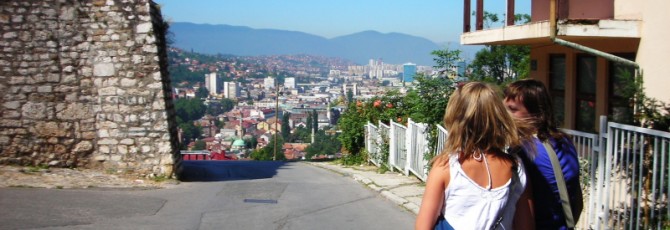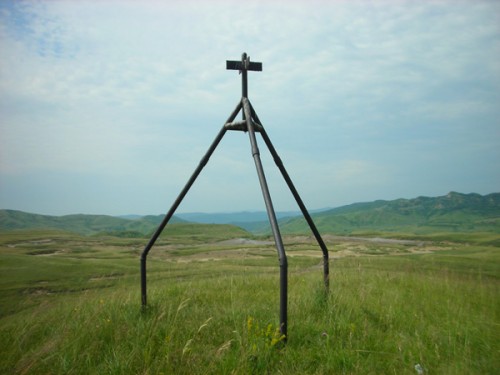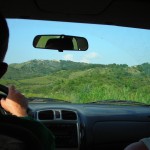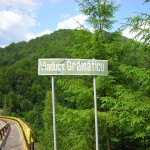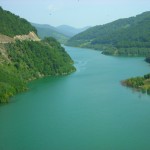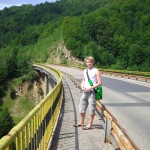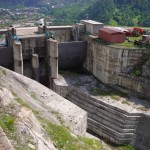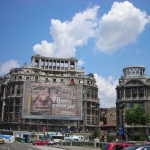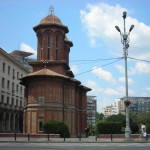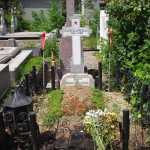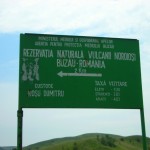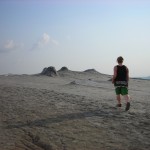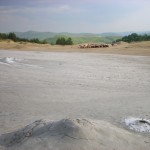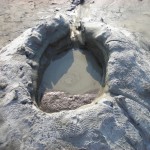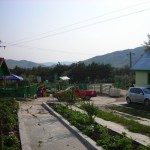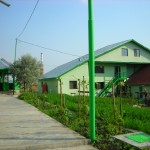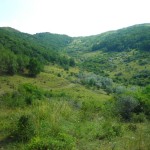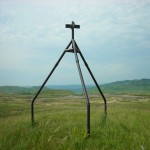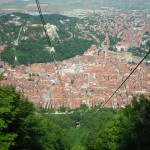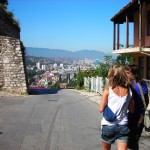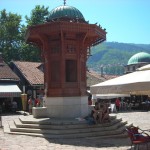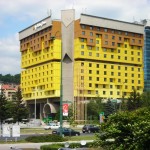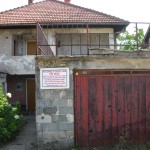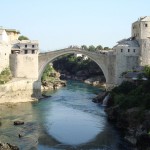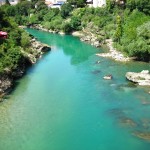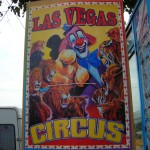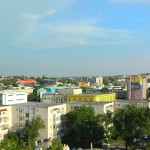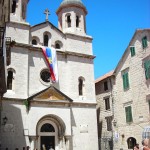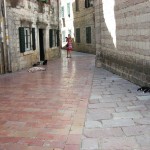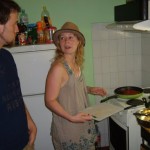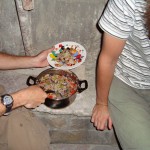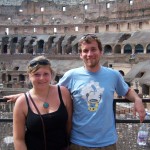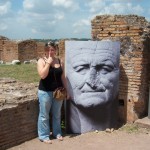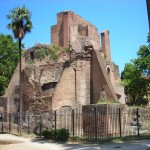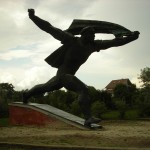I’ve just finished reading Abbey’s Road by the namesake, Edward Abbey. The first half is travelogue, a travelogue done much better, I think, than the Scot Rory Stewart.
The second half is polemics and reflections. Abbey reflects on his time working for the National Park Service and gives insight to what became the narrative for his novel, Black Sun, a book well worth reading.
The travelogue, his journeys in Australia and elsewhere, can be beautiful. The contrast Abbey sees in his Australian counterparts is fascinating: seemingly an entire continent that is much like the American west.
Much of the latter half of the book (none of the articles are dated, which is a shame, considering how he applies his present at the time of writing to the narrative — which wife he was with, or wasn’t, how old he was at the time) was written while he worked as a fire look out. Then the raunchy, the sex-crazed Abbey comes out, possibly as a younger man. No, that’s not true. Abbey held true to his love of women throughout his life. It appears is writing about the constant obsession is more apparent when he was working as a lonely fire lookout.
The whole of Abbey’s Road brought out very clear memories for me, unrelated to his desert or narrative. The train into Rome from the airport there, the mud volcanoes of Romania, Vulcanii Noroiosi. More than the places, the people are strongly attached to the memories. I think these memories are so strong because the trip, although not my first vacation as an adult, certainly was the first “real” as a grown-up, especially considering how long it was. I was in many foreign countries, thousands of miles away from my own, and happy as I’ve ever been.
I still fondly look back, take out those memories, dust them off. Climbing the hill near the Romanian mud volcanoes, all the way to the weird metal cross.
More than the cross, more than the second set of volcanoes I found, I remember the bull standing in the middle of the dirt road, angry, threatening, whom I did not cross. I remember the small hut built into the side of the hill leading down to that dirt road, made of logs and refuse, surrounded by the same. I remember us hitchhiking, unable to speak the language; our aggregate of languages useless. I remember the kindness of the man who picked us up, showed us around. I remember these things and I hold them dear.
While reading Abbey, these thoughts, these memories, came to the forefront. Not just of Romania, of Sarajevo too, of Tanja, from Slovenia and her Polish friend. I remember the two Australian girls, imposing, taller than myself with accents that made them sound stronger, intimidating on a sub-conscious level. Not in a way that was unsexy or unwomanly, but rather, that made me feel inferior, my own voice and accent so weak. I remember the girl from Wales, who explored with us through much of Sarajevo and I remember walking through the darkened streets back to our own hostel at the top of the hill, atop the graveyards left by the genocide.
I remember these things, these beautiful moments and times when I bungled, when I failed, when I did not know what to do and still feel ashamed for it, I remember them vividly. I remember the beautiful sunsets, the wonderful company, the feeling of excitement and wonder.
I wonder if they will fade with time, if they will be replaced by my next “real” vacation, should it ever come. I wonder what a real vacation would entail. I remember my first vacation as an adult, going to the Oregon Shakespeare Festival in Ashland with my girlfriend at the time. I remember dressing up (how I thought of a button up shirt tucked into slacks, now I think of it as work attire) for the play and both of us being slightly disappointed at the failure of the production to come through at the end of “A Midsummer Night’s Dream.”
I know a kept a record of the 2009 summer vacation, to an extent, my own personal travelogue, which I supplemented with beer labels for each area we visited. I even wrote a blog post about the travels at the time. Still, I wonder what comes next. What tops that; what memories will supplant it or augment, make for better or worse.
I remember the bed and breakfast we stayed at and being infuriated by Oregon’s ridiculous speed limits, which stymied our progress, turning what was supposed to be an eight-hour drive into something closer to a 12.
But these memories, I do not dredge them up as I do the others, as I do the paella made in Montenegro at a small hostel in a town that was once a Venetian colony, where dogs and cats lined the alley, lying in the shade, collectively napping.
Abbey, he is the one who set me down the dangerous path of nostalgia, which I am already prone to travel. Except I do not yearn for the days when I was an au pair; I have no desire to re-visit that time or the painful memories which stick out like the needles on a flowering cactus. Abbey’s Road is well worth reading. I will continue to draw on my 2009 summer vacation memories, fours year past now, although I cannot fathom nor do I know where the time has gone or how I have spent it.
I wonder if I am merely reacting because I have not, myself, written a travelogue. I do not know.
After Abbey’s Road, I read The Rum Diary by Hunter S. Thompson, one of the only journalists Abbey is fond of. (Abbey is quite negative towards my profession, despite writing for magazines himself.)
I connected with it, I could see my own newsroom experiences and possible experiences ahead. Still, it felt just a little bit like a travelogue, not a bad thing. Certainly it felt likes its namesake: it does read like a well-written diary and certainly enough rum is drunk for the other half of the name to be true.
Both these books have a strong element of the autobiographical, including Abbey’s novel Black Sun. I’m not sure how I feel about that, considering my own writing. About revealing the self, one’s own actions, for readers, even in a fictionalized context.
Still, tomorrow marches onward, always onward.
- The man who picked us up and spoke none of our accumulated 6-7 languages.He permanently restored my faith in humanity.
- Coming up to the reservoir.
- The man who took us hitchhikers up, and graciously left us at the volcanoes stopped at this reservoir. Abbey would be sad to know we Americans aren’t the only dammed people.
- Our Polish-German travelling companion, fascinated by the bridge and the reservoir, something commonplace to me.
- My German traveling companions were fascinated by the reservoir and the dry works.
- In Bucharest
- Still in Bucharest
- Where the dictator is buried. They loved him much more than his wife.
- Sign to the mud volcanoes
- My guest sister, Hanne.
- Livestock in the background
- In case you were wondering, the mud is cold.
- Another look at where we were staying.
- The complex we were staying at. Workers digging a well on the right.
- The green hills across from where we were staying at the mud volcanoes.
- The three-legged cross near the mud volcanoes (we visited) in Romania.
- The long view of Brasov, Romania.
- Our Polish friend on the left and our Slovenian friend to the right as we prepared to descend into Sarajevo, one of my favorite places on earth.
- The central pigeon roost in Sarajevo.
- Had to take a picture of the Sarajevo Holiday Inn.
- Sarajevo, post-siege.
- The bridge in Mostar, Bosnia, destroyed by the Serbians but rebuilt. Men jump off the bridge into the mountain river below. The river, cold and narrow, made me feel at home, along with the encroaching mountains.
- On the bridge in Mostar.
- The circus is coming to town! The Las Vegas circus! In Tulcea, Romania.
- Panorama of Tulcea, Romania. Rainbow on the left.
- Kotor was a beautiful . . . Hamlet.
- Cats and dogs napping in the summer heat
- The girl from Wales and myself cooking at one of the hostels, probably Kotor.
- The paella!
- Hanne and I in Rome, in the Colosseum.
- Touring Rome with Hanne
- Ruins near the train station in Rome.
- One of the many statues in the statue park outside Budapest. It is a remnant of the Communist regime, the statues moved from inside the city to this park, rather than destroyed after the fall of the Soviet Union.
